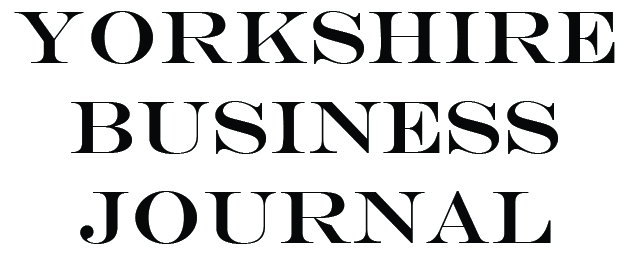2020 HR

Professional HR Services
Name: Sarah Gardner
Website: https://www.hr2020.co.uk/
Position in the company: Owner, Self-Employed
Years with the company: Set up in January 2020 prior to that over 25 years in-house HR practitioner with various organisations
How have HR policies developed in the years within an organisation and would we see major disruptions in the near future?
New legislation will often drive HR policies – the most recent example being the new General Data Protection Regulations (GDPR). In terms of the near future, all bets are off. The current situation with Coronavirus is likely to see a whole raft of workplace changes and policies will need to be updated to reflect whatever is put in place by the government. I would envisage that there will be social distancing policies popping up in workplaces as well as increased flexible working approaches. Some organisations who hadn't previously embraced home working may now see this as a way forward which could help reduce their overheads in terms of office space.
Which are your most successful HR strategies you communicate to your SME clients?
I believe in best-fit over a best-practice approach. Every organisation has its own culture and I believe that the tone and approach needs to reinforce the culture an organisation has or wants and should be reflected in all communication. Just like customers, happy employees can be your best asset and unhappy employees can be your biggest risk. If employers keep this premise underpinning what they do with their people, they will have a more productive and engaged workforce and managers will spend less time having to deal with reactive and negative people issues.
If there is one tip I could give to any organisation, it would be to make sure your people managers understand what managing people means – it isn't an addition to the day job, it is the day job.
How much can companies save by outsourcing the HR department? What are the benefits and weaknesses?
Putting a figure on how much an organisation could save is tricky as there are many different variables in terms of the type of support they need.
One of the benefits of outsourcing is that you don't have ongoing payroll costs and the employer liabilities that come with employing someone directly. My company, 2020 HR, offers a variety of different plans for organisations to match what they require. This could be ad hoc pay-as-you-go service, retained packages or one-off project involvement. This means that the organisation can control the costs depending on their need.
Another advantage is that the consultant can bring ideas from their other clients to the table and also make connections if there are synergies in the business. By the nature of being a consultant, we are always looking what is going on around us where as an in-house HR person can often be too busy focussing internally to do this effectively.
Outsourced HR consultants can remain objective without being drawn into any internal politics there may be which, in turn, can help to achieve the correct result for the organisation.
A weakness with using outsourced HR can be that they don't fully understand all of the challenges facing the business – a good consultant will work closely with their client to get to know the business but unless they are in the senior meetings, there is no way that they can pick up on everything. This also applies to subtle culture aspects within the organisation – again, a good consultant will work hard to gain an understanding but they will only see this through the lens that they are shown depending on the type of activity they are supporting the organisation with.
Finally, if you are using a single HR Consultant, their availability to respond swiftly could be hindered depending on their workload or if they are on holiday or become sick. I work closely with a network of HR Consultants who are able to support me with cover as needed. This group also offers other skills such as Learning & Development consultants and coaches.
What would you say were the most important highlights and low points of 2019 for 2020 HR? Where do you see 2020 HR in two years time and how do you plan to reach this objective?
I left in-house HR at the end of 2019 to start up 2020 HR Consultancy. Having initially made good in-roads with promoting my services and gaining some clients, the lockdown and the majority of my target client having to furlough their staff has offered some challenges. The next steps in how the government handle the gradual return to whatever the new normal will be will offer small businesses with employees some significant challenges. There are inevitably going to be some redundancies and a lot of organisations will have to change their working practices, at least temporarily. This will mean variation in contracts and all the consultation requirements that go with this.
I anticipate an increase in home working and this will bring its own challenges in terms of mental well being, measuring performance, maintaining positive communications plus many more.
Certainly in the short-term, many people will continue to be anxious about their financial future and their health – organisations need to start thinking about strategies to manage this now.
With all the people challenges small employers will be facing, 2020 HR can be there to get them through the tough times and establish a long term relationship with clients to be there when things are less fraught.
What are the common mistakes that companies make? What tips would you give to SMEs about HR strategies, communications and policies?
I mentioned earlier about people managers understanding what this means and this is a big thing. Another big mistake I have experienced is organisations trying to police by policy, People managers need to be empowered and encouraged to make the right judgement call rather than relying on something in writing. No policy can cover all eventualities and the more detailed the policy is, the harder it is to comply with with in its totality if a situation arises that doesn't fit exactly. People are people and there isn't one-size fits all. Up-skilling people managers to use a set of principles to guide their judgements is a better approach, in my view, than trying to have a policy for everything. Another issue with policing by policy is that you rely on your people managers to enforce them and a poor people manager is unlikely to do this – holding people managers accountable for their decisions and judgements (good or bad) is a much better way to embed consistent and fair approaches to managing people.
Let’s talk about customers experience in this digitised world. What’s your HR focussed take on that and how can 2020 HR play an active part?
One positive to come out of the current situation is the understanding of how technology can support businesses. I've mentioned homeworking but it isn't just that – the boom in Zoom means that there will be less requirement to travel to have face-to-face meetings and businesses now understand how training doesn't always mean sitting in a classroom for 3 hours or longer to learn something.
Another positive is that businesses have had to rethink how they communicate with their people while they are away from the workplace – hopefully, the focus on effective communication has sharpened and will result in improvements in the longer term. 2020 HR can support communication strategies, developing a different learning and up-skilling approach as well as using technology to support businesses in providing remote HR support tailored to their needs.
Would you be able to anticipate any new legislation or policy that HR departments need to look out for?
Because of the Coronavirus, many small businesses may already have missed the details that came in April 2020 as a result of The Good Work Plan. The 2 big changes (there are other important ones) are the changes to what should be in a written statement of particulars (employment contract) including the need to issue it at least by the first day of employment and the holiday pay reference period increasing to 52 weeks to establish average pay.
We've already seen the emergency legislation having an impact on what employers can do with their people during the lockdown period and I anticipate further measures will be put in place to get through the gradual return. It's tricky to predict what this will be. Every HR person is glued to the updates to make sure that they are on top of this very fast moving feast.
It will be interesting to see what happens to Employment Tribunal Claims failing out of the Coronavirus period and how the Tribunals will respond to any claims brought as a result of employers trying to follow what has often been very confusing guidance from the government.
Case law has essentially stopped evolving during the recent months and I suspect it will take some time before tribunals and other courts are up and running fully – once they are, we need to be on the look out for what comes out of that.
Finally, there is that little thing called Brexit – it is still very unclear what impact this will have on out legislation. Reassurances have been given that no rights will be removed but not that there will be no changes at all – I guess we just need to watch this space.
We are looking for businesses to interview.
CONTACT USPlease contact us and increase your company online visibility


